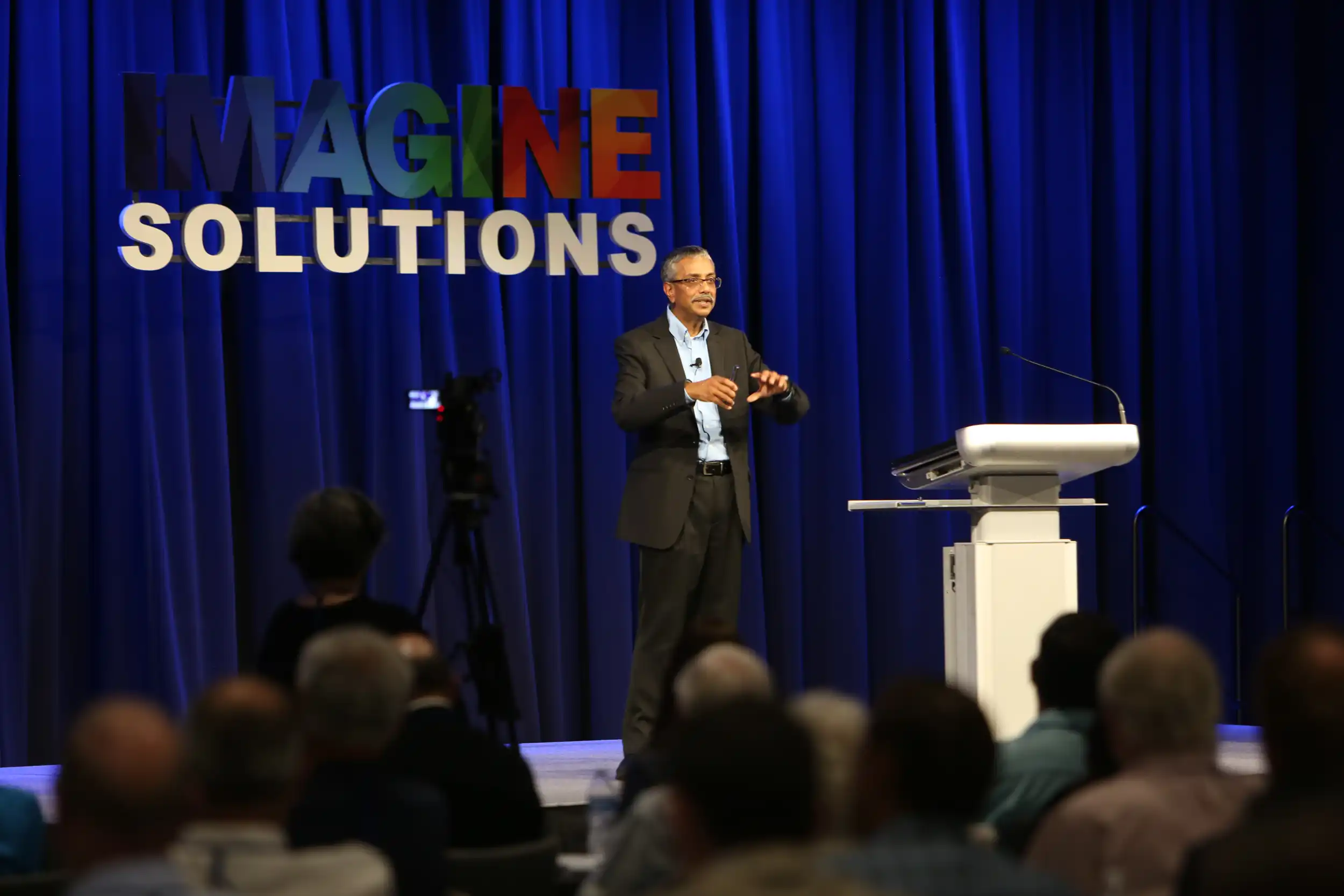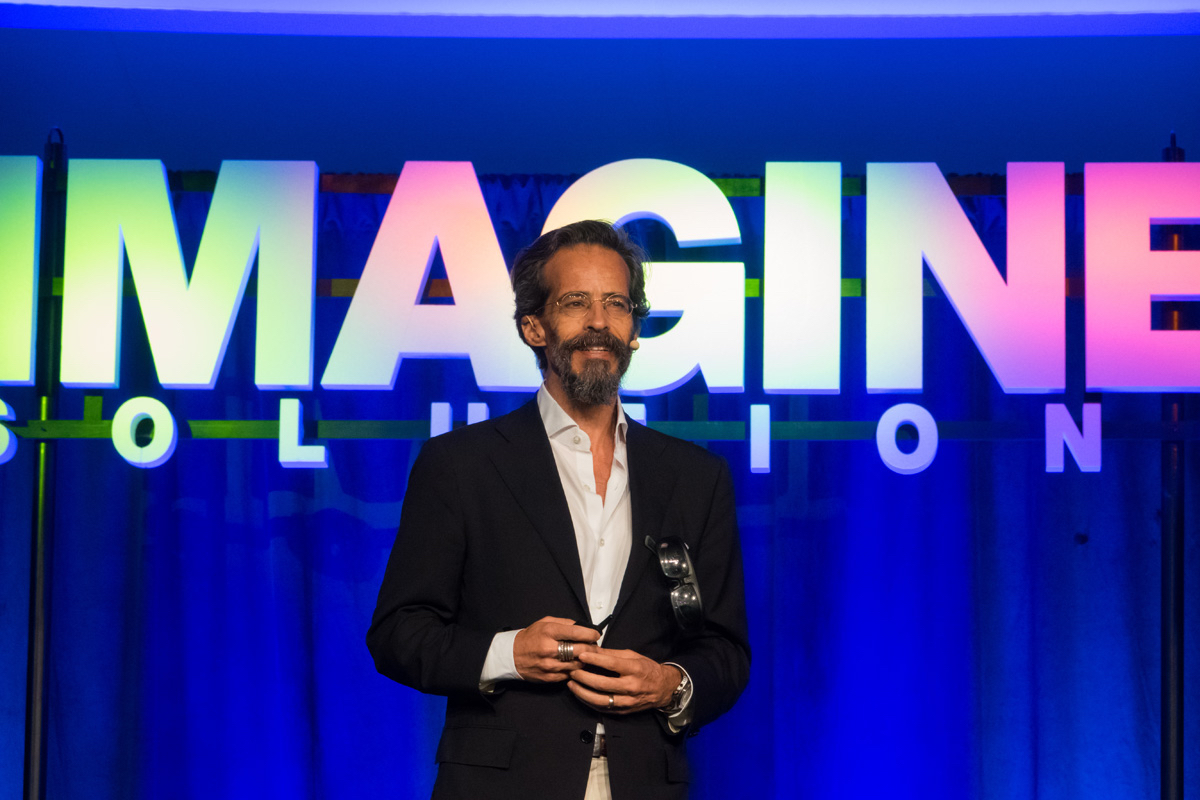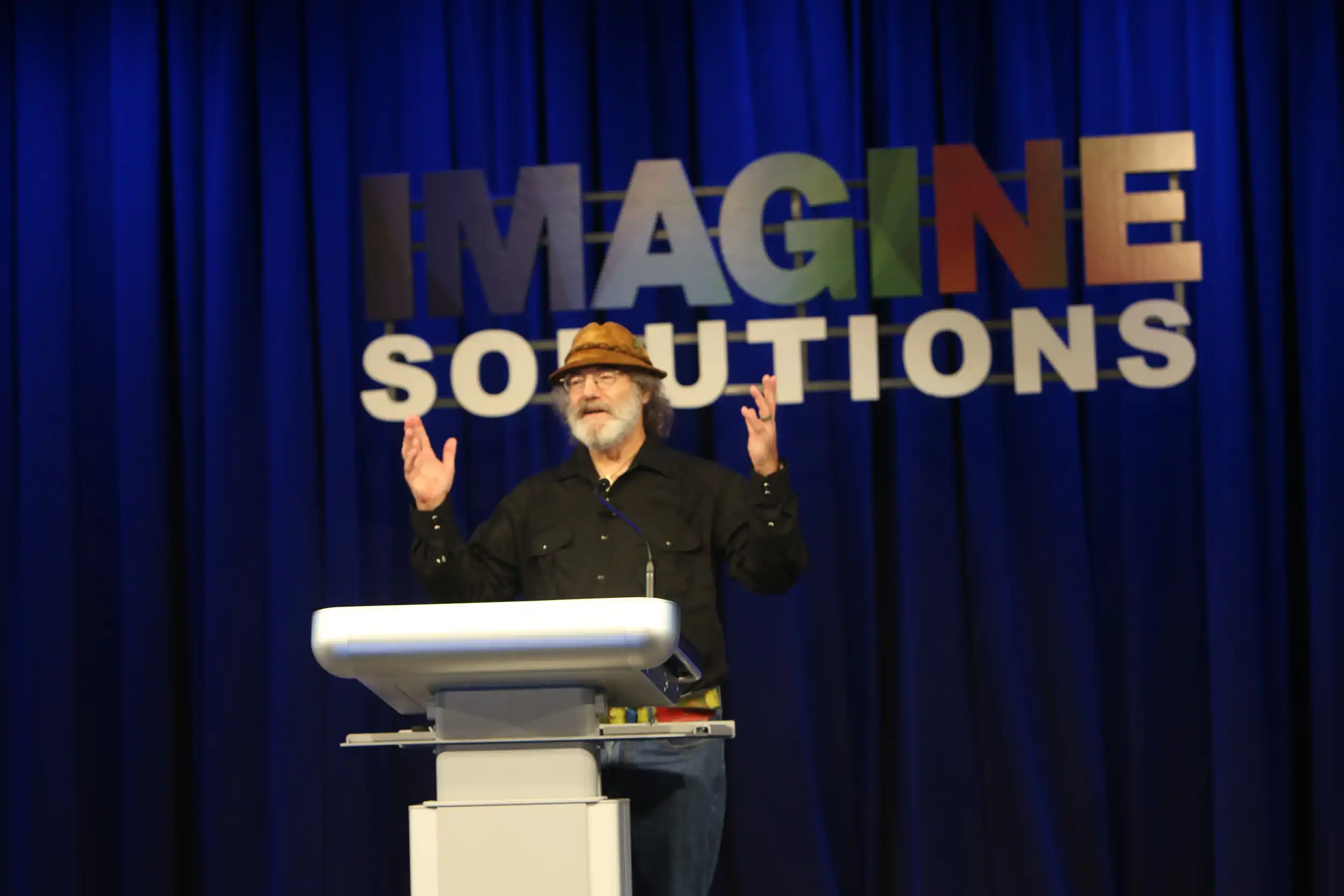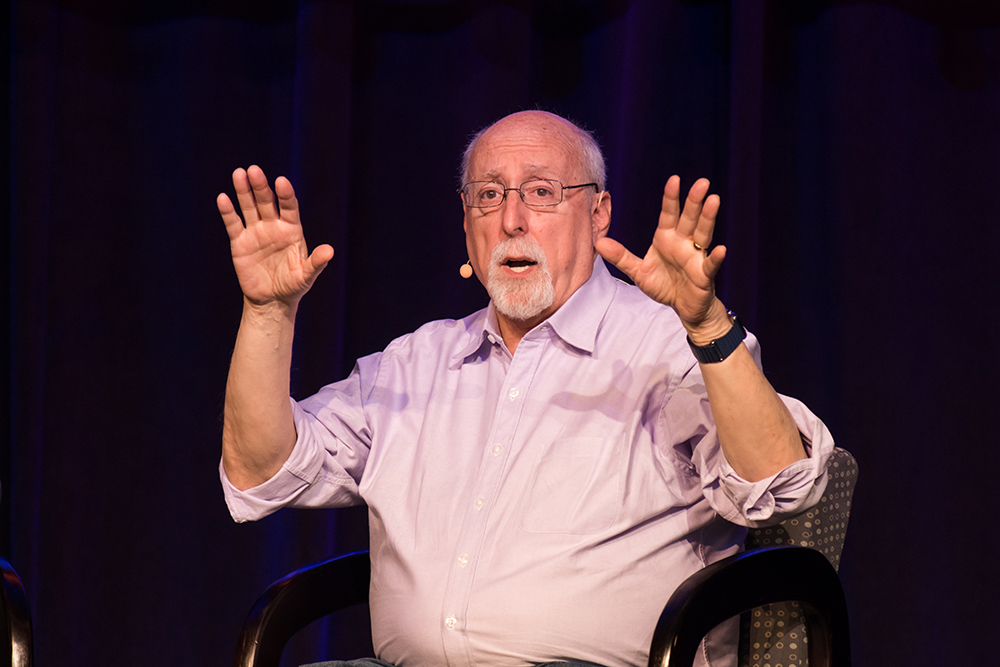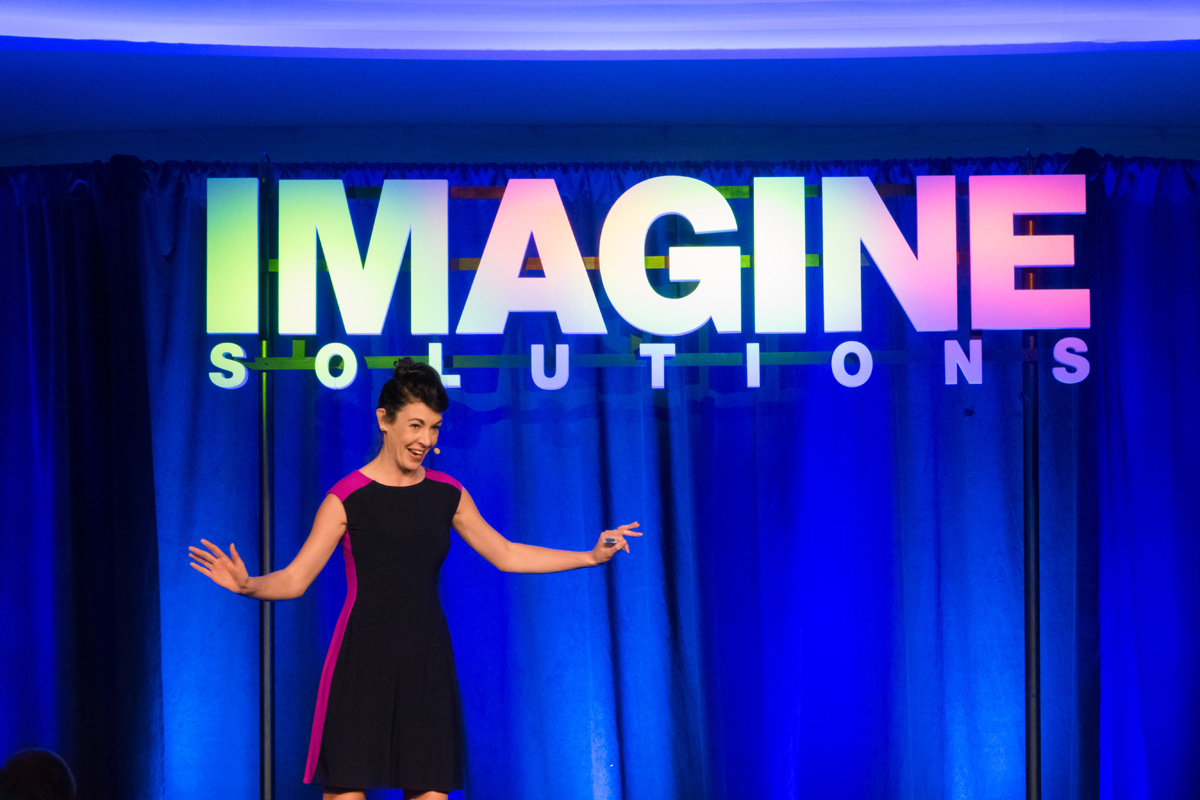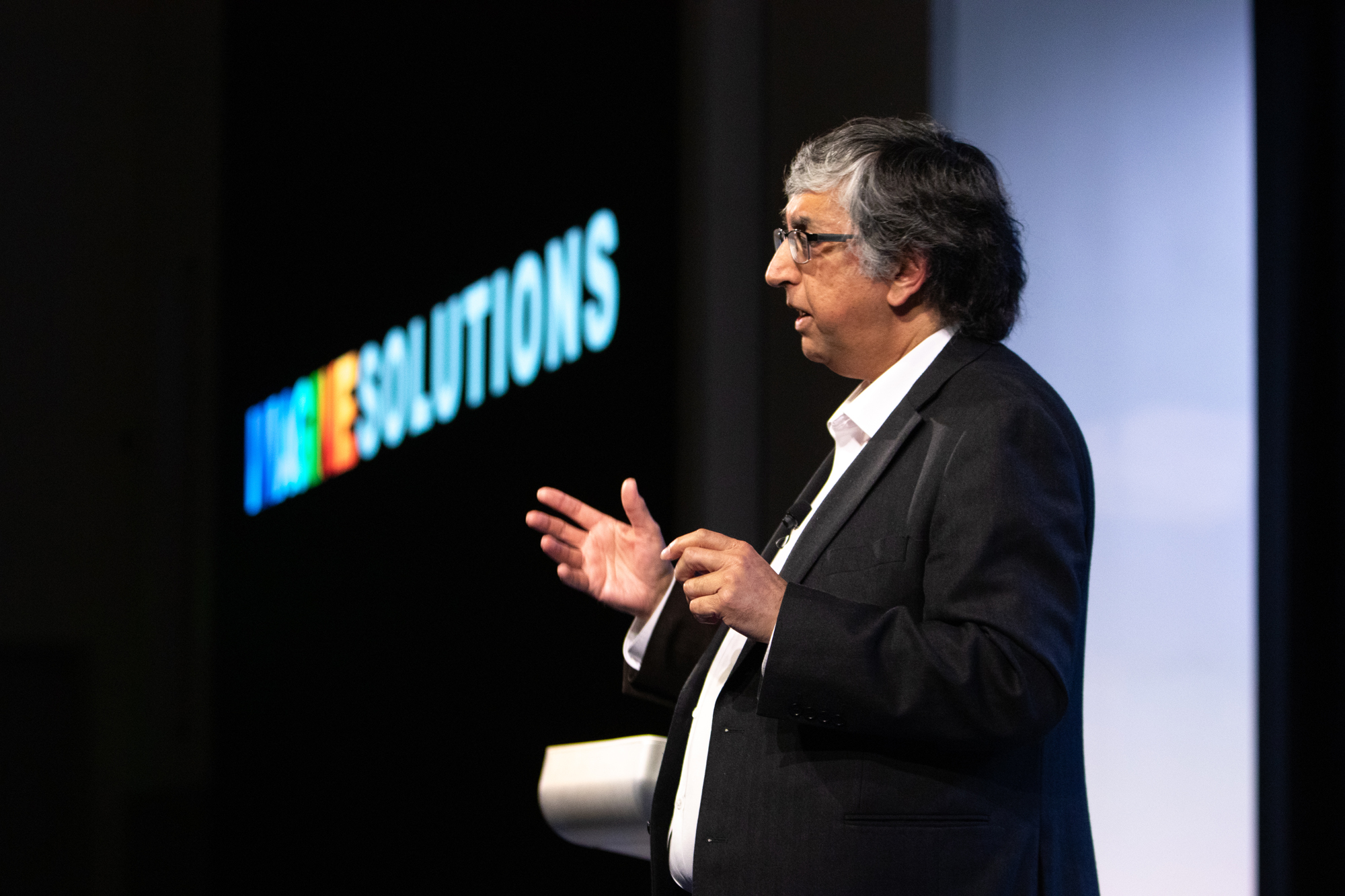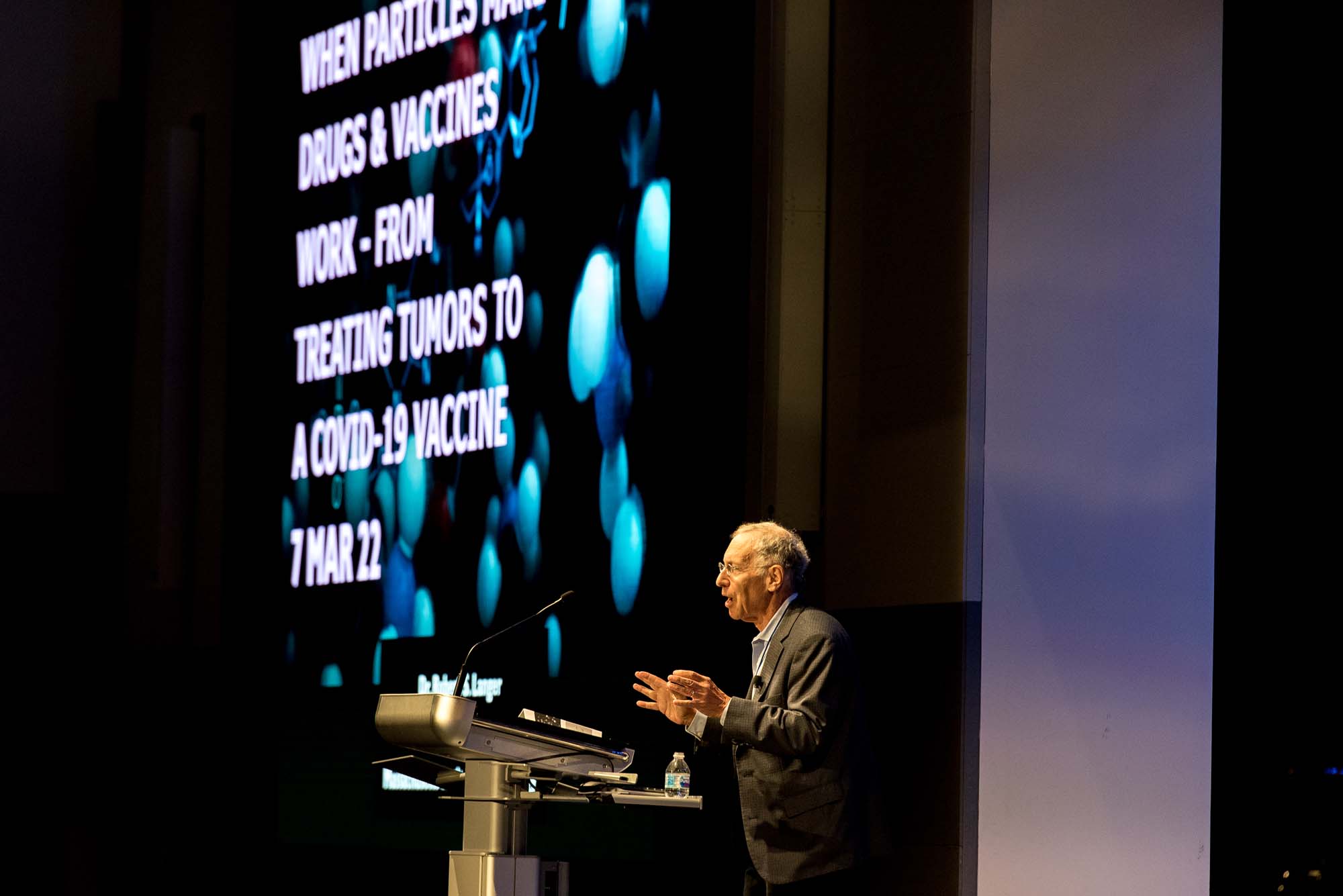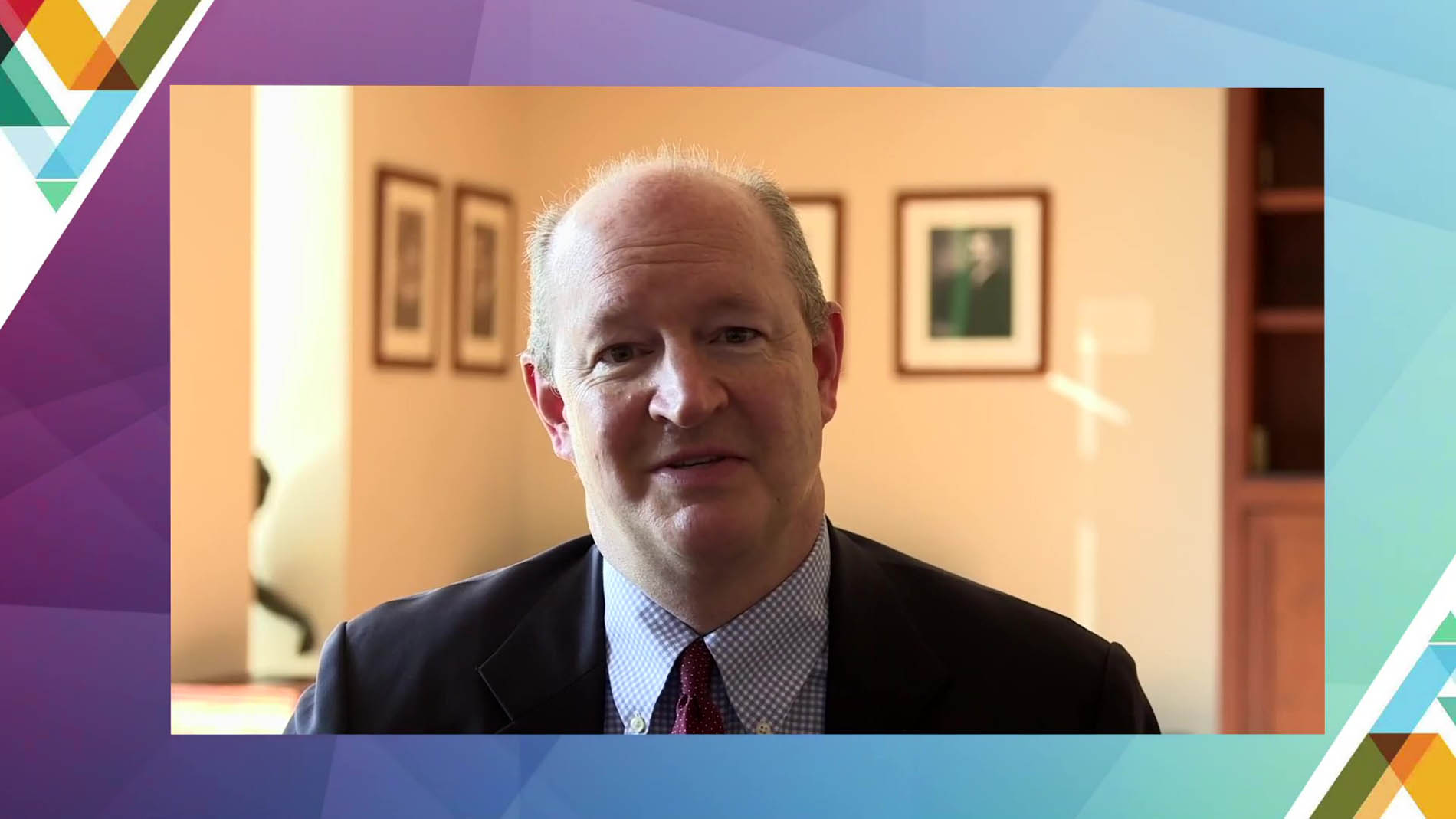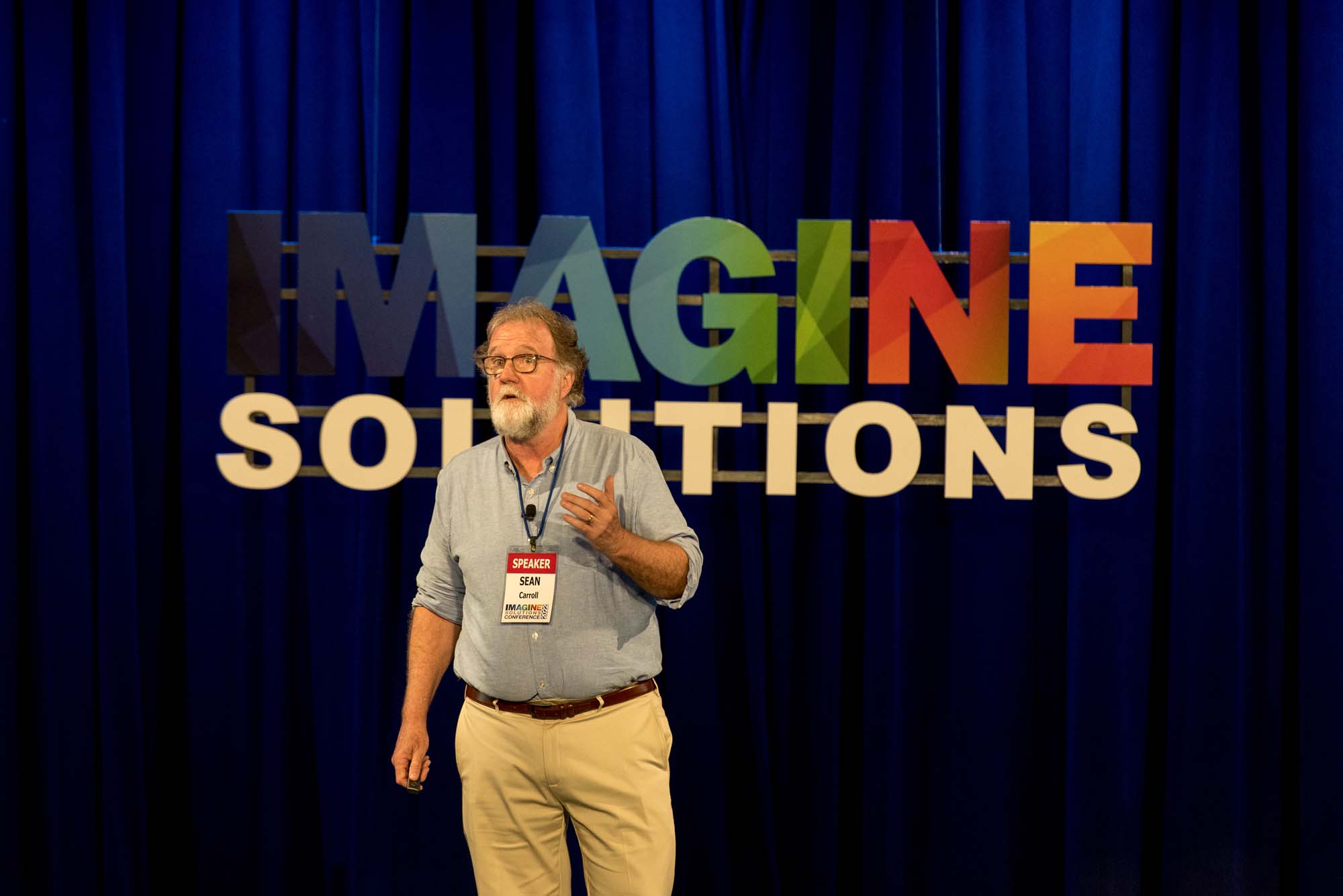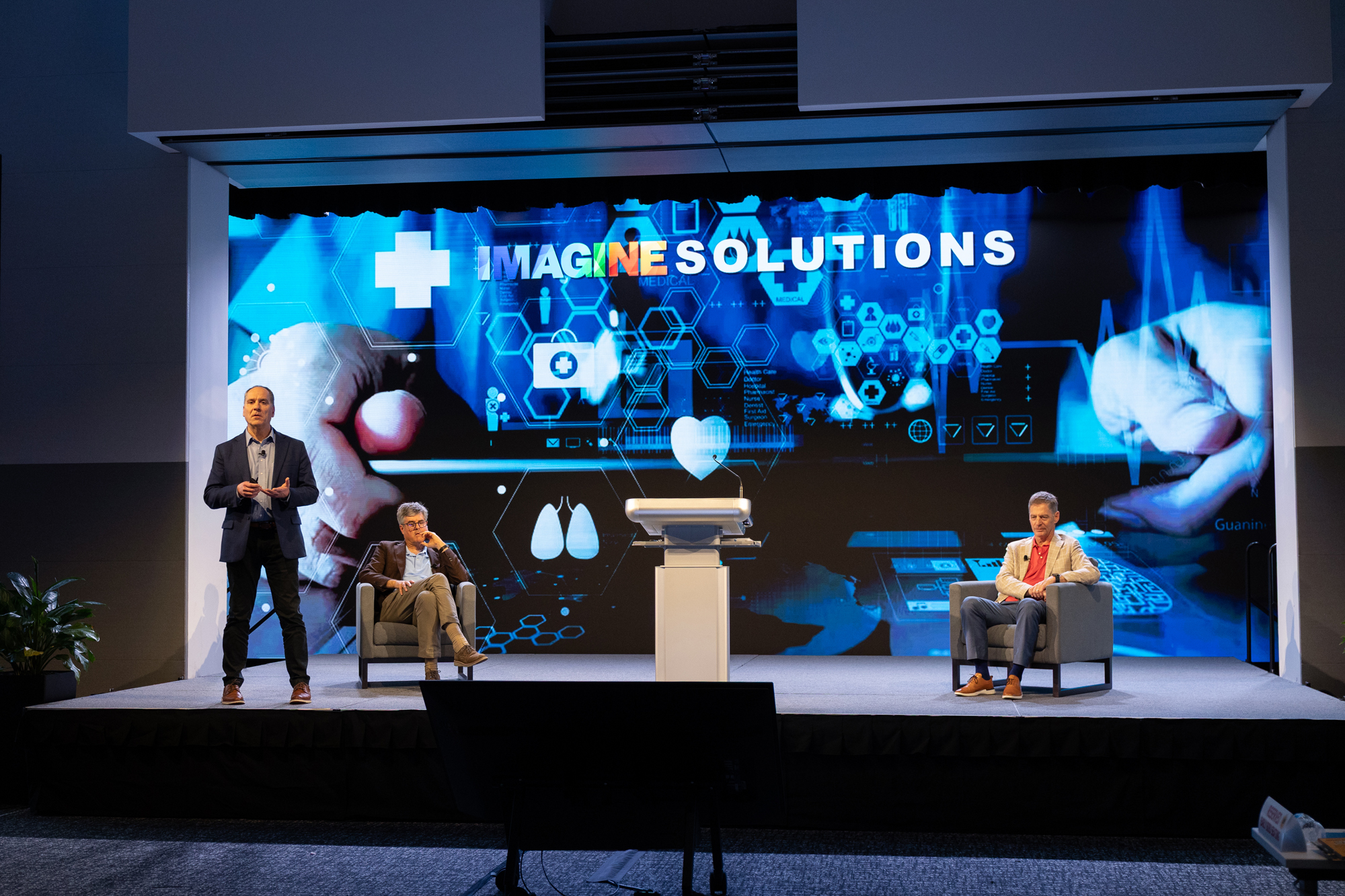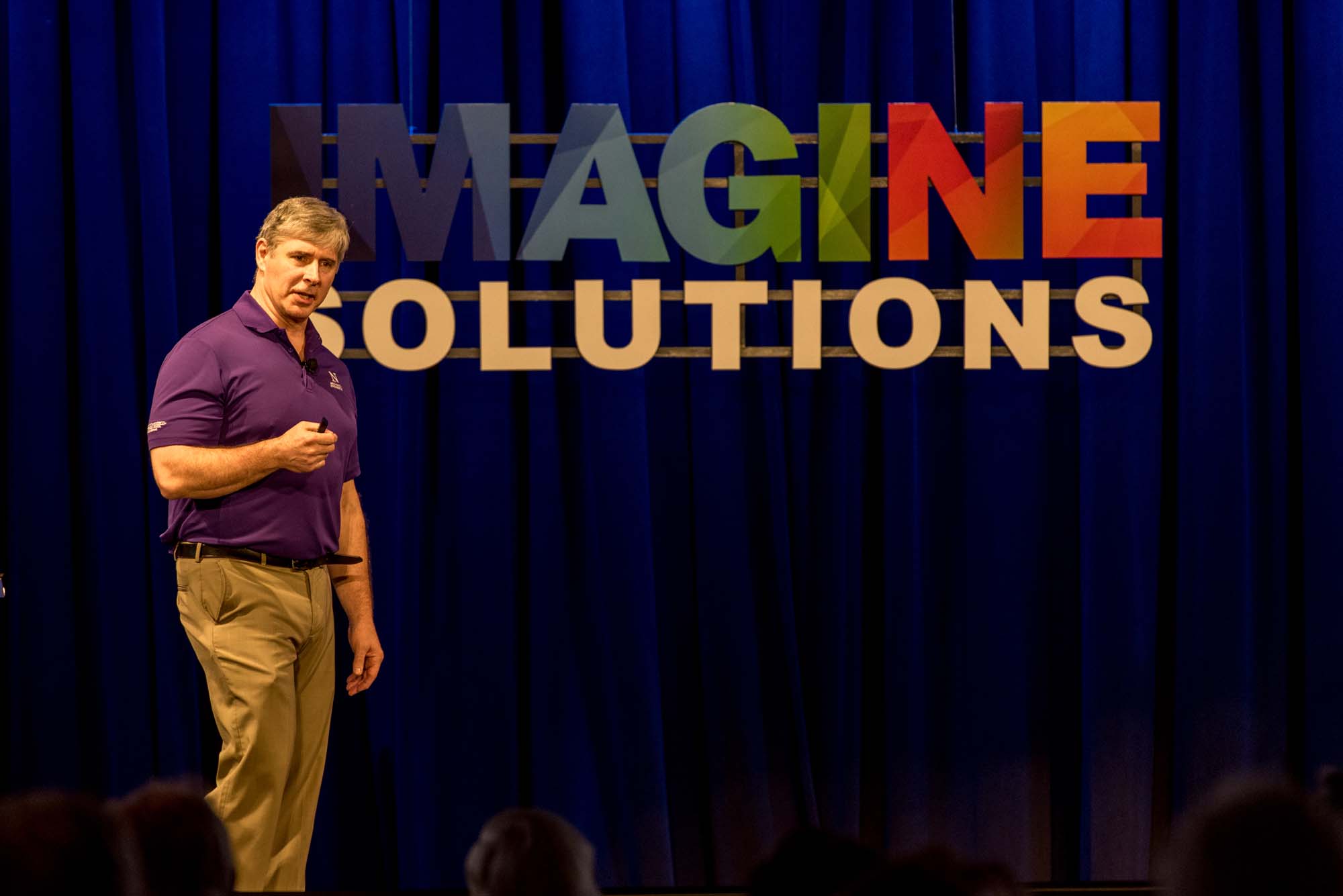The Science of Energy
00.00
foreign [Music] Pop Quiz what's the one thing that stitches every talk today stitches together every talk you could not have had each one of those talks without one thing and only one thing what is it energy everything you saw here started with energy everything in this room started with energy you all know it it's in front of you and we can't even imagine it think about that
01.00
you take it for granted so second question Under the Umbrella of energy it's everywhere and it's fundamental to Modern Life so this morning when you flipped the lights on I bet you you weren't like going up on DraftKings and figuring out whether it's going to come on or not right you were pretty sure they were going to come on when you charged your phone and you were hoping for it to go from red to Green I don't know about you guys but when I'm below 50 I'm looking for a charger okay I have range anxiety on everything the elevators look at look at all the stuff that's going on in these pictures behind me that we all take for granted so let me just describe energy for you a little bit because the in the spirit of Sesame Street we're going to have two words today that we're going to keep coming back to technology and scale because that's what underpins energy you gotta have technology you gotta have science and you have to have scale so let's talk about technology you know if
02.01
you want to be a chemist what do you do you study chemistry if you want to be a pharmacist what do you do you study Pharmacy you want to be a broadcaster you study broadcasting what do you want to do if you want to be an energy you have to study everything it requires every discipline of science math physics chemistry biology and every discipline of engineering chemical mechanical nuclear civil electrical every discipline all integrated together that's technology at scale it's just a different type of scale it's integrating it all together how do all the pieces fit now let's talk about scale because units are really hard to understand we talk about millions of barrels a day a hundred million barrels a day we talk about gigawatts and terawatts of power and most of you don't even know what that means but if asked you what a jig a
03.00
lot is you would know what a jigawatt is because that's how you get a DeLorean to go from 1985 back to the 1950s and a jigawatt's not even a thing so the scale of this millions of barrels a day EXO joules of energy terawatts of power is huge it's everywhere it's fundamental to Modern Life and yet there's a billion people out there that don't know what I'm talking about that don't have access to Affordable reliable energy that quite frankly just want to live the life we've been living and you've heard that from the various talks today how do we improve quality of life well the first thing you do is you provide energy it changes the way you cook it changes the way you go to school it changes the fact that you can go to school it changes your water it changes your medicine it changes everything and for the longest time we didn't know if we'd have enough energy to even get to the point where we could have access to energy and again because of technology and
04.02
because of Technology at scale we can see line of sight to that now why is that well in the U.S for instance right we developed a thing called fracking which allows more oil and gas we learned how to ship gas around by turning it into a liquid called LNG we brought in solar we brought in nuclear we brought in all forms of energy the number of forms of energy we have today relative to when I started several decades ago is quite frankly mind-boggling so we have line of sight to this how do we get that one billion people today and remember this doesn't stop because there's two billion more coming largely in the developing regions so this is a scale challenge that continues to build upon itself and we've got to figure out how to do that so you think okay well he just said that we know how to do that but as often things turn
05.00
you solve one problem and you have another challenge and the challenges keep adding in this space and so we're going to talk about the challenge we're all facing today which is how do we do more and reduce emissions and guess what guys that's another technology at scale problem okay how do we do this how do we provide the energy while reducing missions well for those of you that are kind of mathematical you look at that well that's a two variable equation Vijay two variables this is not a problem two equations come on well it's not two equations think about energy think about the fact that it has to serve different sectors the way power is addressed is going to be different than Transportation transportation is going to be different than heavy industry and then you have sub-sectors the way you move a car yeah you can do that electrically I don't think you're going to do that to an airplane thermodynamics really does matter and
06.00
you need a liquid hydrocarbon fuel to move an airplane so you go from a two two-part equation challenge to now you have multiple sectors and oh let me add one more thing you can have Geographic differences so the solution for China is going to be different than the solution for Germany it's going to be different solution for India is going to be different different for the solution in the U.S and in the within the us we have seven grids so you're going to have sub Solutions in the U.S and you know what I'm some of you guys are thinking he's describing a Fibonacci Sequence this is incredibly complicated it's complex but the problem is simple we want scalable energy and we want to reduce emissions that's the challenge and we're going to talk about that and I'm going to try to put it in context and then come back and talk about well what are we doing how do we actually do this because we have it's a problem that covers time scales covers magnitude covers spatial scales
07.02
all of those it's it's a challenge of a lifetime and I'm really excited that there's students out there I'm going to come to you near the end of the talk but this is a generational challenge that we're on and we've got to get at it so let's talk about that and I'm going to come back to the two words today scale and Technology we're going to need it to meet the demand for energy and we know how to do this and panch started by talking about inventions that the National Science Foundation works and we work with the Department of energy we work with the National Labs we work with universities we work with everyone but the but you got to have line of sight to scale and what I would have added would I'd add to ponch's discussion is the magic of energy is going from invention to scale and the bridge between invention and scale is innovation and if you think about the numbers of Innovations as you look at these pictures just think about all of this that has to happen at the scales we're
08.00
talking about for your lights to come on for your cars to move for the airplanes to move everything here we know how to do it we've done it we've we've collaborated think about the things we've done from fracking to lithium-ion batteries to to solar panels much of which has been developed in the U.S invented in the U.S all of it which has been scaled by industry that collaboration that way we move Science and Technology from concept to scale is what we need to focus on and again we know how to do this we now have a new set of challenges which is we've got to continue to do this providing the energy reducing the emissions now as we're doing that I know you know this and we've talked about this already a couple of times today about it has to be continuous there can be no Gap you want your energy you want it to be
09.00
continuous you don't want intermittency you don't want the lights to come on and off you don't want the fuel to not necessarily work this isn't digital where you can you know send out a patch and you can you can fix something right this is full-blown you want industry operates you want transportation to work you want power to work and therefore as we're navigating this transition not a switch a transition we have to remember the key conjunction so we didn't get into Schoolhouse Rock we talked about Sesame Street we talked about CNBC remember Conjunction Junction on Schoolhouse Rock the word is and the word is and it's not or it's and so we have to do that we have to first recognize that the current technology is insufficient so how do we do this as this screen rolls behind me take a look the International Energy agency just looked at the 55 needed Technologies and you can see it's broken out by sub-sector so you can see for
10.01
each one of the sectors I talked about the sub-sectors and you have simple traffic lights red yellow green that tell you whether you're on track or not and you got to look hard to find the green because 53 of these 55 are not on track now let's start with the good news we know what the 55 are that's good we know what the 55 are we know we've got to get the current technology to go out and if you looked at the industry in particular right this is really hard this is steel this is iron this is cement this is refining this is chemicals people often forget that energy itself is energy intensive so how do you turn these lights from red to Yellow to ultimately to Green it's recognizing that what you have right now needs more work that's okay we need more work we have to continue to provide energy we have to look for ways to reduce emissions and I should add that efficiency is one
11.00
of the knobs to turn so the more efficient you get the better off you are with the energy so if the current technology is insufficient to meet the global demand which is a fact but we want energy and we want to reduce emissions we come back to end we come back to we have to do the and and so what do I mean by the ant what I mean by the end is we got to deliver today and position for tomorrow that's the whole point of a transition you want to go as fast as you can as hard as you can and when the other when the technology is ready you need to deploy them so what does that mean well we need to continue to provide more energy today and you're seeing it in the U.S you're seeing increased oil and gas production you're seeing increased chemicals production you're you're seeing refineries expanding we just we just expanded a Refinery and just to give you some units we expanded a Refinery by 250 000 barrels a day
12.00
when I started back in the Dark Ages that was a world scale refiner in itself and now it's an expansion the scale of this industry is amazing so we need to deliver today and as Tyler said we need to be researching and developing and deploying the Technologies for tomorrow and what do those include well those include carbon capture as you mentioned take the CO2 and don't let it get in the atmosphere catch it from the point where it's emitted or pull it straight out of the air take it sequester it safely that's a good thing to do switch to Fuels to biofuels so as the fuel is being grown if you will CO2 is being pulled out of the air such when you combusted you're more or less in balance that's a good thing to do hydrogen you hear a lot about hydrogen why do you hear about hydrogen when you burn hydrogen there's no CO2 it's water question is how do you make the hydrogen you can make the hydrogen from a CH4 which is methane you can make the
13.01
hydrogen from water split water take H2O you can make water from biomass so there's different ways to do it the good news is we need lots of shots on goal to get to the scale and remember geography is going to matter policy is going to matter technology is really going to matter and the technology at scale is going to be absolutely vital so we've done this this industry has been around a long time it's always been rooted in science and technology it's always been about meetings demands of society improving quality of life that is what we do and we have to keep doing that while we're positioning for tomorrow that's the what now let's talk a little bit about the how collaboration and that's actually while imagine is one of the themes the other theme you're hearing about is collaboration when I talk about collaboration for energy I'm going to talk about it in four dimensions I'm going to talk about in universities governments smaller companies
14.01
and large companies they need to work together and let's talk about the roles real quick universities when you heard Ponch speak this morning he talked about the funding and a lot of the funding goes to universities why because that's where fundamentals happen and the nice thing about universities is graduate students and I was one of those many many years ago they're kind of ever it's a continuous flow so you have constancy a purpose in the university to continue to push the envelopes and further understand further understand further understand that's great governments with their National Labs and National research foundations National Science foundations and all this I think can really help because they have the breadth to have a wide array of analytical equipment wide array of other types of equipment that no one company or no one University can have so it's kind of like a public library you can use the equipment you can use their testing facilities to try out ideas that's really important smaller companies what's their role first deployment
15.00
getting on a deployment curve because what you want for the way you have to do two things simultaneously you have to scale up and you have to bring costs down scale up cost down first deployment how you get on a deployment curve how you come down a cost curve as you go up a scale curve is critically important and then finally you've got to get to that scale large companies like ours that have the project expertise the capabilities to do projects now I'm going to challenge what I just said because what I just described was a series approach and one of the first thing you learn in physics is parallel processing beats series processing every day so if we want to accelerate we have to collaborate and I can't play the piano that's as close to a rhyme as I can get okay if you want to accelerate you have to collaborate and then the other thing you have to do is you've really got to do things in parallel
16.00
so while the fundamentals are going on are you asking are you answering a question that's going to help us scale if you are that's a pretty important question to get because you might be able to tweak what you're doing in the lab with line of sight to scale that could be choosing a different metal because the metal you're using there's like five drops of it or five grams of it in the world you want to use something that's plentiful you want a large raw material as you're getting to the to the first deployment you're asking yourself how is this going to scale what should the first deployment size be and how can I go from n equals one to n equals n how can I get to that nth deployment so we can get the cost down and the scale up that type of collaboration is going to be critical now like I said we've done this before and what's underpinned energy for hundreds of years is the power of Science and Innovation to go from this picture to the next which is where we want to go
17.00
and that's where the students I'm guessing you got a day off this is a field trip you got you got out of school today which is fantastic and you're getting to see all this good stuff because it's it's really critical that we Inspire and motivate students that we help them imagine a world where we do have the energy want and we've managed the emissions and we've done it because of the technology because we've Unleashed it and yes technology science has to work with policy makers technology policy infrastructure all have to come together we've got to come together working in the same direction the previous speaker talked about how do we bring everybody together this is one we're all in agreement we all want to provide energy we all want to reduce emissions how do we go about doing that well the common barrier the Common Ground here is science and innovation we've got to continue to drive technology we've got to continue to encourage the next generation of leaders to take up math and science and chemistry and physics
18.00
to go to University study these things and then pick your position on that that chain I talked about universities National Labs small companies large companies everything's needed all of the above it's all good we're sitting here and imagine conference I will tell you if somebody's given me a blank sheet of paper 35 years ago and said describe energy in 2023. I would have not done very well I would have not imagined what we're able to do today but with the power of Science and the power of Technology and the power of innovation I'm absolutely convinced that we can address this and we can continue to provide energy while reducing our emissions now imagine that thank you very much for your time [Applause] [Music] thank you [Music]

